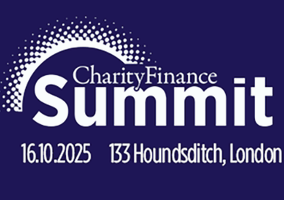We have developed this new event in response to the extraordinary times we find ourselves in. We believe that now is the time to start thinking beyond our immediate challenges to build sustainable organisations that are fit for the future.
The world has changed beyond measure. The global economy is rebuilding and reshaping in response to the colossal shock of the Covid-19 pandemic. The world appears to be losing the war against climate change and social and humanitarian crises are unfolding and intensifying across the globe. There is a growing awareness that organisations have a personal accountability to consider their social and environmental footprint and to behave responsibly. But what does this really look like? Our agenda has been put together with these complex issues in mind, with the aim of creating a space where challenges, progress and ideas can be shared openly.
From navigating the complex world of responsible investment, through to the business case for championing equality and diversity, our broad range of speakers will consider the myriad of ethical challenges facing today’s leaders. We also consider what the charity sector might learn from the corporate sector’s adoption of ESG values and reporting structures, and how we might tap the hidden potential of civil society to help create a better world.
We hope you will join us for what promises to be an inspiring, practical and thought-leading conference.
Programme
31 March 2022
-
8.45AM - 9.30AMRegistration, refreshments, networking and time to visit exhibition
-
9.30AM - 9.35AMChairs welcomeTristan Blythe, editor, Charity Finance
-
9.35AM - 10.05AMOpening Address - The ESG Imperative for Charities - looking beyond investment
The global impact of the Covid-19 pandemic and the accelerating climate crisis have changed the fabric of society, and caused many organisations to reevaluate how they operate. There are increasing pressures on charities to demonstrate that they are making a positive impact on society and are not doing any harm to others in the pursuit of their charitable objectives.
This session will delve beyond the application of ESG factors in investment to explore:
- How the rise of ESG factors in the commercial sector will become increasingly relevant to modern charities;
- The potential opportunities and benefits for charities of engaging in ESG;
- The risks of not engaging; and
- Practical suggestions to start board conversations and implement changes.Louise Thomson, head of policy (NFP), Chartered Governance Institute
-
10.10AM - 10.50AM1A. Using shareholder power to influence change and push for progress
This session will highlight some of the ways your charity can go further than sustainability, and how your organisation can invest with impact. As sustainable investment continues to evolve we are helping an increasing number of charities maximise the impact of their investments.
• Examining how large charities can make a positive societal impact with their investments
• Making the most of your charity’s assets
• Collaborating with other investors to raise the market standard on ESG issues
• Increasing transparency to encourage companies to improve their ESG scores
• Increasing board accountabilityKate Rogers, co-head of charities, Cazenove Capital
-
10.10AM - 10.50AM1B. Taking action to close the sector’s pay gap and why it matters
Research conducted by the Living Wage Foundation indicates that one-fifth of third sector workers earn below the real living wage. There is also evidence of continued pay segregation, with women, racialised groups and people with disabilities being more likely to experience low pay in the
sector. After more than a year of pandemic fighting, the third sector has some time to think about how it rebuilds through and beyond Covid-19. This session will explore the importance of providing workers with a real Living Wage in order for charities to continue to provide essential services yearround and attract new people into the sector.
Katherine Chapman, director, Living Wage Foundation -
10.50AM - 11.10AMMorning coffee, networking and time to visit exhibition
-
11.10AM - 11.50AM2A. Starting from scratch - how to set your own ESG strategy and start reporting
Putting sustainable and responsible practices at the heart of the organisation is fast becoming a pivotal requirement. Scrutiny of charities is intensifying from supporters, funders and other stakeholders, and is not going away. By having an integrated and long term environmental, social and governance strategy, charities can take an important step in shaping what they stand for and - critically - how others see them. This session will draw on applied experience from the rise of ESG in the corporate sector to explore how charities might begin to shape an effective strategy, looking in particular at the practicalities of reporting in each of these areas and drawing upon charity sector research conducted by RSM.
Nick Sladden, partner, head of charities, and Carys Tetlaw, senior consultant, RSM UK
-
11.10AM - 11.50AM2B. 50 Shades of Green: Transitioning to a more sustainable world – what this means in practice
This session considers how to address the key ESG issues that matter to you and your beneficiaries and importantly, how to reflect these practically in an investment portfolio. We will aim to provide a framework for consideration when adopting ESG criteria within your investments:
• ESG investments can have an impact without there being a wildly different risk/ return experience to mainstream investments
• How to assess that your investments are truly tackling the issues that matter to you
• Ensuring your manager evolves with the times
• Listening to your beneficiaries to understand what is truly important to themCaroline Ramscar, Head of Sustainability Solutions, Legal & General Investment Management
-
11.55AM - 12.45PMPanel: Beyond COP26 - creating sustainable organisations that are fit for the futureIf we are to win the race against catastrophic climate change, we are in dire need of rapid collective action. But when the reality is that many charities are operating under immense pressure and on limited resources, what practical steps can they take to help tackle climate change? What does a meaningful sustainability strategy look like, and how can organisations commit to net-zero carbon targets that are realistic and achievable?
Chair – Maisie Hulbert, policy officer, Acevo
Panellists - Paul Anderson, chief executive, Vogaye Youth, Janet Thorne, chief executive, Reach Volunteering and Patrick Begg, director of outdoors and natural resources, National Trust, Anna Frizzell, sustainability manager, RNLI
-
12.45PM - 1.45PMLunch, networking and time to visit exhibition
-
1.45PM - 2.25PM3A. What is a charity’s responsibility to be responsible?
In addressing this question, Neville will consider both the regulatory landscape and requirements expected of charities, but also how the adoption of a holistic approach can ensure a charity’s aims are being fulfilled, not only through grants and projects, but directly through a well-aligned investment portfolio.
Neville White, head of responsible investment policy and research, EdenTree Investment Management
-
1.45PM - 2.25PM3B. Environmental change is one of the great issues of our time, but how will it affect the investment world?
This presentation explores how climate change is helping to fundamentally reshape global political economy, as well as highlighting some of the challenges and opportunities investors face in the coming decades.
Ajay Johal, investment manager, Ruffer
-
2.30PM - 3.10PMPanel: How to create an inclusive workplace culture and why it mattersPanellists include - Nathan Nalla, director, Be the Riot and Gamiel Yafai, managing director, Diversity Marketplace
-
3.10PM - 3.30PMAfternoon coffee and networking
-
3.30PM - 4.20PMPanel: Turning the lens inwards - how to lead by example and why now is the time
The Charity Governance Code outlines guiding principles for boards and leaders to follow to ensure organisations are acting with integrity and upholding its values. But is it enough? The world is changing and the climate crisis is escalating, with the result that organisations are being held to increasingly high ethical standards. What does this mean for charity leadership in practice, and how can the sector begin to strengthen its voice and standing in order to champion and demand positive change?
Chair - Louise Thomson, head of policy (NFP), Chartered Governance Institute
Panellists - Daniel Chan, chair, ICAEW Charity Committee, Nathan Nalla, director, Be the Riot, Chris Sherwood, chief executive, RSPCA, Shivaji Shiva, partner, VWV, and Sue Tibballs, chief executive, Sheila McKechnie Foundation -
4.20PM - 4.25PMChair's closing remarksTristan Blythe, editor, Charity Finance
-
4.25PM - 5.30PMNetworking drinks reception
Prices
Great ways to save!
- Be an early bird!
Book your place now to save up to £150 off the ticket price. - Attend with your team!
Ensure your whole team benefits from a great day's learning. With the Charity Team Ticket you can send up to four people
| Ticket type | Super early-bird (before 21 January) | Early-bird (before 25 February) | Final release tickets (after 25 February) |
| Charity delegate | £99 | £169 | £249 |
| Charity team ticket (up to four places) **Limited quantity available** |
£249 | £460 | £649 |
Contact
For sponsorship and exhibition queries contact Matthew Nolan
For speaker queries contact our events team
For registration queries contact Carys Pugh
For media partnerships and marketing queries contact Kirsty Brown
Terms & Conditions
- Payment
- Registrations will not be fully confirmed until correct payment is received. If you have any issues with payment, please contact [email protected]
- Programming
- Please note that speakers and topics were confirmed at the time of publishing, however, circumstances beyond the control of the organisers may necessitate substitutions, alterations or cancellations of the speakers and/or topics. As such Civil Society Media Ltd reserves the right to alter or modify the advertised speakers and/or topics if necessary. Any substitutions or alterations will be updated on our web page as soon as possible.
- Event attendance
- Delegates are required to observe and comply with all laws, regulations, rules and requirements relating to COVID-19 and which Civil Society Media has adopted as part of its operations. Civil Society Media will communicate the COVID-19 Measures to you from time to time including and without limitation via pre-Event emails, its social channels and the event website
- Civil Society Media reserves the right to alter or remove its COVID-19 Measures at any time in response to the latest guidance or legislation from the UK Government or as otherwise deemed necessary by Civil Society Media in its discretion.
- Civil Society Media reserves the right to eject you or refuse you entry from the event if, in our reasonable opinion, you are refusing to comply with any COVID-19 Measures without reasonable grounds.
- Cancellation or reimbursement
- On receipt of your booking form, your place is confirmed. Delegate substitutions are allowed. Refunds on cancellations will only be issued (less a 15% administration charge) up to and including 30 days prior to the event. Refunds will not be issued after this date. Confirmation of cancellations MUST be in writing and sent to [email protected]
- Individual registrants who registered as part of a discounted group registration are not eligible for refunds, unless the entire group cancels. Registrations may be transferred to another person from the same organisation at any time.
- Postponement or Cancellation of the Event by the Organiser
- Should we have to cancel or postpone due to COVID-19 we will endeavour to give you as much notice as is reasonably possible.
- In the event that we have to postpone this event due to COVID-19, we will transfer your ticket to the next alternative date.



















